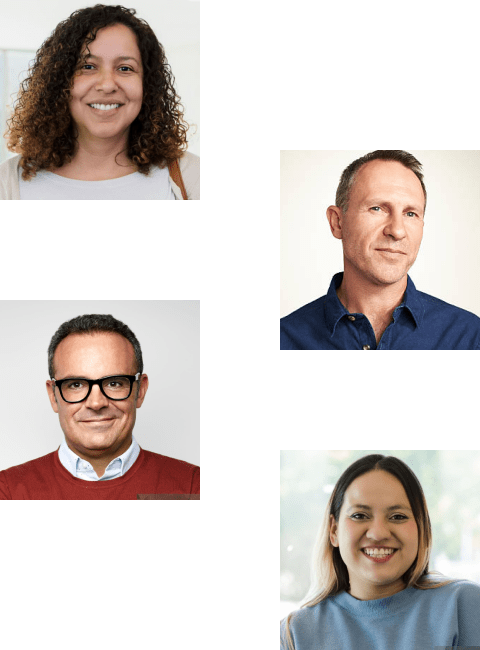Why Learning to Apply Knowledge Matters More Than Just Knowing It

You can usually tell in the first five minutes of a meeting who just knows the theory—and who actually understands what to do with it.
It doesn’t matter if we’re talking about marketing, finance, or logistics. Plenty of people can quote frameworks, rattle off definitions, or list all the right steps. But when something goes wrong, when something needs to be built from scratch, or when the situation doesn’t look exactly like the textbook—those people freeze.
That’s where applied knowledge makes all the difference. And it’s not just a nice-to-have. It’s the thing that separates useful from replaceable.
The Difference Between Knowing and Applying
Let’s start with something simple: learning how to drive.
Reading the rules of the road is step one. But reading about driving is not the same as merging during rush hour or parallel parking in a tight spot. You can “know” everything from the manual and still be completely useless behind the wheel.
The same logic applies to nearly every skill that matters.
A student who can define research methods but struggles to design a basic survey hasn’t really learned research. An employee who’s memorized communication theories but can’t hold a calm, productive meeting when tensions rise hasn’t learned communication. Knowing about a skill doesn’t make it useful. Applying it does.
Why Knowledge Often Stays Theoretical
Schools, especially early on, reward the right answers more than the right process. If you give the correct definition or formula, you get full marks—even if you don’t actually understand how or when to use it.
This creates a comfort zone. Students get used to studying for tests, not for understanding. And even later, when assignments shift toward real-world thinking, many students stick to what they know: collecting facts and writing them down.
Why? Because applying knowledge is harder. It means making decisions. It involves uncertainty. And there's a real risk of getting it wrong. That discomfort leads many to avoid pushing beyond the familiar.
But here’s the uncomfortable truth: outside of the classroom, no one pays you to recite facts. You’re paid to solve problems. And that always requires more than just knowledge—it requires judgement.
How Applied Thinking Gets Built
Applying knowledge isn’t something you flip on like a switch. It’s a skill you grow by stretching yourself in different directions. Here are three reliable ways to build it:
-
Turn knowledge into questions.
After learning something new, ask: Where would this apply? When would it not? What happens if I change one part of it? For example, after learning a research method, try to challenge its weaknesses or imagine different fields where it could be used.
-
Practice using ideas in new formats.
Write short case studies. Talk about the concept out loud as if you’re teaching someone else. Create your own examples. Don’t just summarise what you read—try to use it in a new situation.
-
Accept the mess of real thinking.
Real applications are messy. Your first try will probably be awkward. That’s normal. The point isn’t perfection—it’s progress. And the only way to sharpen your judgement is to start using it.
If you're still in school and struggling to translate your ideas into solid assignments, sometimes outside help makes sense. A professional coursework writing service can help you see how knowledge is structured and applied in real academic work. It’s not about copying—it's about understanding how good work is built.
What It Looks Like in Real Work
As a business owner, I’ve hired dozens of people straight from university. The ones who succeed long term don’t always have the highest grades. But they ask the right questions. They try things. They reflect on what worked and what didn’t.
Let’s take a marketing assistant I hired last year. She didn’t come from a top school. But when we discussed campaign strategy, she brought up examples of actual companies. She compared outcomes. She asked why we’d target one segment over another.
Compare that to another applicant—same GPA, same qualifications—who couldn’t get past buzzwords. He listed every textbook model but couldn’t tell me how he’d actually write a headline for a target audience.
You can guess which one got the job.
Final Thoughts: Application Is the Point
We don’t go to school just to gather facts. We go to learn how to use them. If you finish a course and still don’t know how to apply the ideas in a different setting, the job isn’t done.
Applied knowledge is how people solve problems, earn trust, and create value. It’s how students become professionals—and how professionals grow into leaders.
So if you’re learning something today, stop and ask yourself: Can I use this yet?
If not, that’s the part you need to work on. That’s where the real learning starts.
- Art
- Causes
- Crafts
- Dance
- Drinks
- Film
- Fitness
- Food
- الألعاب
- Gardening
- Health
- الرئيسية
- Literature
- Music
- Networking
- أخرى
- Party
- Religion
- Shopping
- Sports
- Theater
- Wellness

